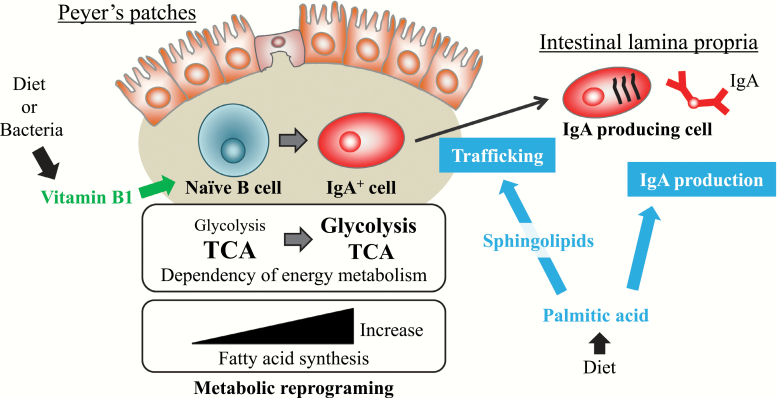Fig. 2.
Role of dietary nutrition and its metabolism in intestinal IgA responses. The nutritional conditions are an important factor in the control of immune metabolism and function. Naive B cells have a high dependency on the TCA cycle for energy generation, and therefore depletion of dietary vitamin B1, an essential cofactor in the TCA cycle, results in decreased B-cell numbers in the PPs and a reduction of intestinal IgA responses against oral vaccine antigens. Dietary palmitic acid enhances intestinal IgA production through a direct effect on IgA-producing cells and an indirect effect via endogenous sphingolipid metabolism.

